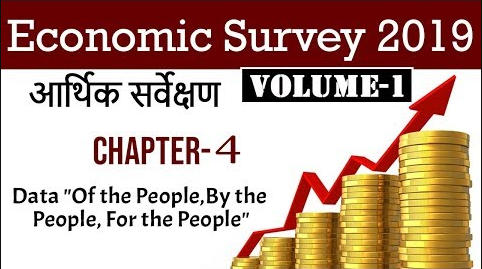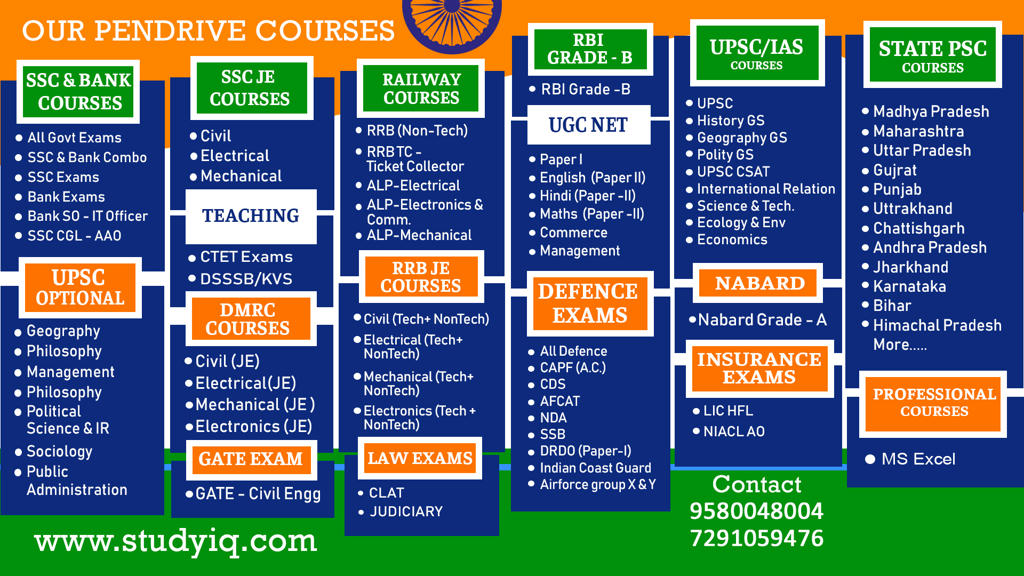Table of Contents
Q) When the alarm of your smartphone rings in the morning, you wake up and tap it to stop the alarm which causes your geyser to be switched on automatically. The smart min-or in your bathroom shows the day’s weather and also indicates the level of water in your overhead tank. After you take some groceries from your refrigerator for making breakfast, it recognises the shortage of stock in it and places an order for the supply of fresh grocery items. When you step out of your house and lock the door, all lights, fans, geysers and AC machines get switched off automatically. On your way to office, your car warns you about traffic congestion ahead and suggests an alternative route, and if you are late for a meeting, it sends a- message to your office accordingly. In the context of emerging communication technologies, which one of the following term” best applies to the above scenario?
A.Border Gateway Protocol
B.Internet of Things
C.Internet Protocol
D.Virtual Private Network

- Navigating in an uncertain, wobbly world requires constant monitoring of the path followed by the economy using realtime indicators. Thus, data can serve as the stones that enable one to cross the river.
THE ECONOMICS OF DATA AND SOCIAL WELFARE
- As people increasingly use digital services such as pay bills, file taxes etc., data is being generated at an unprecedented scale.
- Due to this data explosion, the marginal cost of data has declined exponentially and the marginal benefit to society of using this data is higher than ever.

- The cost per gigabyte of storage has fallen from U61,050 in 1981 to less than U3.48 today.
- However, the surfeit of data and a limitless capacity to store it is of no use unless one can make sense of these colossal quantities of data in a reasonable time.
- Fortunately, technological progress has made it possible to process these BIG DATA to make sense out of it.
EXAMPLES RELATED TO DATA UTILIZATION
- A district education officer can make better decisions if he knows, for each school in his district, attendance rates of students and teachers, average test scores and status of school toilets.
- Parents can make better decisions about which school to send their children to if they know the average absenteeism rate of teachers in their village and can compare the rate to that in the neighbouring village.
BUT THE CURRENT SITUATION
- Currently, much of the data that Govt. store about its citizen is dispersed across different registries maintained by different ministries.
- This is why every time a citizen has to access a new service, they are asked to collect all the documents to prove their identity and prove their claim on the process.
- For example, to get subsidies or benefits due to a farmer, such as free electricity, an incomplete list of documents include the Ownership Certificate issued by Village Administrative Officer, Chitta Adangal (extract from land registry), a Patta (Record of Rights) or Sale Deed, No Objection Certificate from any Government Project nearby and other documents to prove that one is a farmer on that land.
- Example of reducing target error in welfare schemes:-
- Consider a hypothetical individual who is affluent enough to own a car but is able to avail BPL welfare schemes, though unwarranted.
- When datasets are unconnected, the vehicle registry does not speak to, say, the public distribution system registry. Consequently, the public distribution system continues to subsidise this individual erroneously.
- However, if the two datasets are integrated, such inclusion error can be minimised, saving valuable Government resources

IS DATA A PUBLIC GOOD?
- In economics, a public good is a good that is both non-excludable and nonrivalrous. (Street Lighting)
- Data carries some of the characteristics of public goods.
- It is non-rivalrous, i.e., consumption by one individual does not reduce the quantum available for others.
- But data can be made excludable, i.e., it is possible to exclude people from accessing data.
- However, there are some kinds of data – particularly data gathered by governments on issues of social interest – that should be made pure Public Good in the interest of social welfare.

WHY MUST DATA BE TREATED AS A PUBLIC GOOD?
- Private sector investment in data related endeavours is higher than ever before.
- A 2017 Forbes survey found that 53 per cent of companies actively use big data to make decisions.
- In fact, in the last two decades, the world has witnessed the emergence of companies, such as Facebook, Amazon, Instagram, etc., who earn revenue exclusively from people’s data.
- But there are several areas where data is not as ubiquitously harnessed and used.
- Consider, for example, the agriculture market.
- If the marginal benefit to a farmer of acquiring price information is higher than the marginal cost of that information, he would pay for that information.
GOVERNMENT INTERVENTION
- While the private sector has done an impressive job of harnessing some kinds of data.
- Government intervention is required in other areas where private investment in data remains inadequate. Such as education and healthcare.
- In the agriculture sector, the Government has done exactly this by creating the e-NAM, as it is unlikely that the private sector would come up with a solution like this on its own.
DATA PRIVACY WHILE CREATING DATA AS A PUBLIC GOOD

- In the endeavour to create data as a public good, it is very important to consider the privacy implications of data being used.
- The key difference in dealing with these different types of data is the knowledge and consent of the data principal.
- The processing of data should be in compliance with accepted privacy norms and the upcoming privacy law.(B N Srikrishna report)
ECONOMIES OF SCALE AND SCOPE IN THE DATA GENERATION PROCESS
- The need for a Government-driven data revolution is motivated by 3 key characteristics:-
First,
- (i) When it comes to data, the whole is larger than the sum of its parts, i.e., it is more useful when it is married with other data.
- For example,
- Transactions data extracted from the Jan Dhan accounts of the Department of Financial Services, Ministry of Finance, married to demand for MGNREGA work from the Ministry of Rural Development.

- Such combining of disparate datasets can be extremely useful in obtaining the necessary richness required to design and implement welfare policies.
Second,
- (i) Data needs to cover a critical mass of individuals/firms so that comparisons and correlations can be assessed among individuals/firms to generate useful policy insights.
- (ii) Thus, to gather price data on trades across various product markets and across the country, a very large number of producers and buyers need to log their transactions on a platform in real time.
- (iii) Thus the government intervention to generate data.
Third,
- (i) Data must have a long enough time-series so that dynamic effects can be studied and employed for policymaking.
- (ii) For instance, to undertake before-after evaluations to assess the effectiveness of policies, data that spans a long-enough time series is critical.
- (iii)Data are generated by the people, of the people and should be used for the people.

BUILDING THE SYSTEM
(DATA THAT PEOPLE SHARE WITH GOVERNMENT BODIES)

- Data collection in India is highly decentralised.
- For each indicator of social welfare, responsibility to gather data lies with the corresponding union ministry.
- Consequently, data gathered by one ministry is maintained separately from that gathered by another.
- Example- Data on an individual’s vehicle registrations is maintained by one ministry, whereas the same individual’s property ownership records lie with another ministry.

- However, if these different pieces could be put together, we would find that the whole is greater than the sum of parts.




UTILIZING TECHNOLOGICAL ADVANCES TO ELIMINATE ALL PRIVACY CONCERNS
First,
- While any ministry should be able to view the complete database, a given ministry can manipulate only those data fields for which it is responsible.
Second,
- Updating of data should happen in real time.
Third and most importantly,
- The database should be secure with absolutely no room for tampering.
IS IT SAFE TO EMPOWERING THE GOVERNMENT WITH DATA?
First,
- Large quantities of data already exist in government records, and the objective is only to use this data in a more efficient way.
Second,
- People can always opt out of divulging data to the government, where possible. For example, one can choose not to participate in a survey or use government-run payments services.
- There are exceptions, of course. People cannot buy and drive vehicles without a license and registration certificate

APPLICATIONS OF DATA
- Once the infrastructure is in place, the applications are innumerable.
- A robust data backbone can empower every stakeholder in society, from the Central Government to a local government body, from citizens to the private sector.
GOVERNMENTS THEMSELVES AS BENEFICIARIES
- Governments can improve targeting in welfare schemes and subsidies by reducing both inclusion and exclusion errors.
- For example, cross-verification of the income tax return with the GST return can highlight possible tax evasion.
PRIVATE SECTOR FIRMS AS BENEFICIARIES
- A part of the generated data should be monetised to ease the pressure on government finances.
- Allowing the private sector access to data about students’ test scores across districts.
- It will help to uncover unmet needs in education and cater to these needs by developing innovative tutoring products tailored to the specific needs of specific districts.
CITIZENS AS BENEFICIARIES
- Citizens are the largest group of beneficiaries of the proposed data revolution.
- Consider the case of Digital Locker. Citizens no longer need to run from pillar to post to get “original” documents.

WAY FORWARD
- As data for social welfare may not be generated by the private sector in optimal quantity, government needs to view data as a public good and make the necessary investments.
- Going forward, the data and information highway must be viewed as equally important infrastructure as the physical highways.
- In the spirit of the Constitution of India, data “of the people, by the people, for the people” must therefore become the mantra for the government.

DATA IS THE NEW OIL
- No Horse, No Elephant, No Lion is ever sacrificed on the altar of God.
- Who is sacrificed is the meek & weak Goat.
- That means even God can’t save the weak & helps the one who is brave.
- This leads to the conclusion that our Country must be Strong & Soverign.
Latest Burning Issues | Free PDF























 WhatsApp
WhatsApp